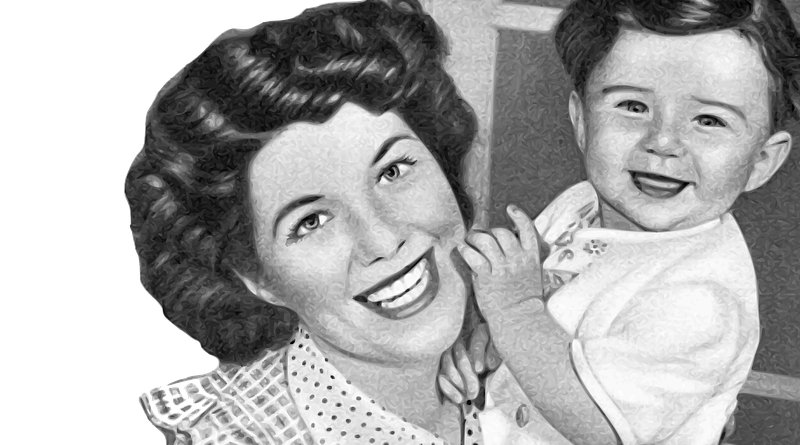Advertising Continues To Assume Mothers Only Use Knowledge For Domestic Caring
Magazine adverts continue to tell mothers to put caring for their families front and centre – and encourage them to devote all their knowledge to protecting and caring for them rather than for their own benefit or professional advancement.
A study of adverts in women’s magazines since the 1950s found they present mothers with an idealised image of the ‘knowing mother’, where they are exhorted to put all their expertise to use in service to the family.
Researchers from the University of Sydney, Lancaster University, the University of Edinburgh, Monash University and St Gallen University studied advertisements in Australian Women’s Weekly and Good Housekeeping, in the UK, for each decade between 1950 and 2010.
Their findings, published in the Journal of Consumer Culture, show that the visual representation of mothers as knowledgeable consumers for the whole family changed over the period, from being guided by experts to possessing expertise themselves.
However, assumptions about their responsibilities endured, as advertisers repeatedly positioned them in terms of their domestic responsibilities, such as cooking and cleaning, using their knowledge for family purposes and not necessarily for their own gain or professional pursuits.
“Knowing how to consume correctly for the family has become a major definer of female identity,” said report lead author Professor Teresa Davis, of the University of Sydney Business School.
“The caring mother is one of the most recurring images of femininity in post-war advertising. Representations of the good mother are especially evident in relation to her consumption for the family through her knowledge of cooking, caring and cleaning ‘correctly’.
“The advertisements we looked at place an emphasis on what mothers can, should and need to know, inviting readers to compare themselves with the ideal they are presented with.
“Despite shifts in attitudes that appear to share the role of caring within a family, there exists an enduring assumption that mothers should be responsible. Adverts increasingly position mothers as being required to acquire more expertise and skills to professionalise their mothering and to use this knowledge largely for maternal purposes.”
The researchers found a shift in the representation of mothers in advertising over the 60-year period studied.
In the 1950s, adverts show mothers following the advice of (mainly male) experts such as doctors, celebrities and psychologists, on how to ‘consume correctly’ and care for their children. They would decide which particular brands of toothpaste, vitamins or clothing they should buy, with their choices legitimised by being ‘doctor’ approved. Images highlight the pressures of intensive mothering, with the knowledgeable mother one who happily sacrifices her time to make the right decisions for her family.
The theme continued into the 1960s and 1970s, with maternal knowledge drawing on scientific statements and experts in adverts, providing a grounding for decisions. While professional and domestic lives intertwine in the 1980s and 1990s, mothers use their professional skills and knowhow to consume efficiently for the family.
By 2000 and 2010, the mother becomes the expert herself, no longer passively following instructions, instead negotiating their way around complex scientific facts and sifting through claims about subjects such as genetically modified foods. She needs to know enough to be able to question experts; however, the adverts still represent mothers as possessing and striving for this knowledge primarily for the protection of their families and children.
“”Through the decades we studied, we can trace the transformation of the depiction of mothers from someone informed by experts about how to consume for her family to someone who is an expert herself,” said co-author, Professor Margaret K. Hogg, of Lancaster University Management School. “The mother who listens to the voice of the knowledgeable expert is present in advertisements in the early decades of our study, between 1950 and 1970.
“There is a major shift in recognising a woman’s place as a holder of scientific knowledge. This is not just around the family, but also on issues such as the environment, sustainability, illness and well-being.
“In 2000 and 2010, the authoritative expert is replaced by the mother as the expert herself. It is no longer enough to follow implicitly an expert’s instructions, the mother needs to know enough to be able to ask questions about climate change, cognitive development and GMO food, to know how to consume and protect her children. The adverts show them using their knowledge predominately to consume well on behalf of their children, thus fulfilling their primary maternal role.”
This use of knowledge for the family is a common theme throughout the advertisements studied by the researchers in both Good Housekeeping and Australian Women’s Weekly, be they for washing powder, vitamin supplements, tissues or disinfectants.
“In all instances, the representation of the knowing mother is presented as what mothers should aspire to, and this is an enduring vision across seven decades and two continents,” said co-author Professor David Marshall, of the University of Edinburgh Business School.
“Although knowledge changes over the decades, it remains bent towards the pursuit of a selfless maternal ideal, strengthening gender stereotypes and the traditional hegemony.
“Women’s knowledge is rarely used for personal gain – usually not in professional roles, such as a doctor or environmental scientist – but rather is harnessed to the highest purpose: that of carefully informed maternal consumption for the family.”

